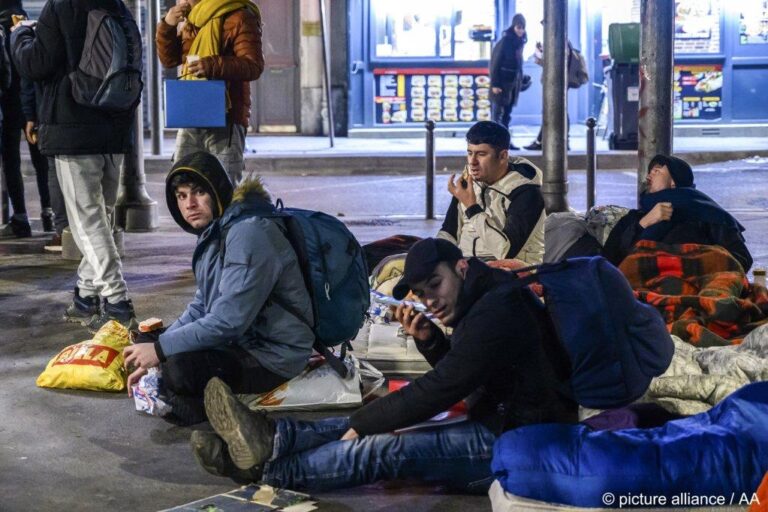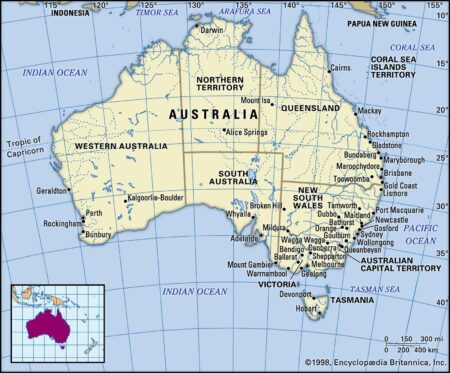In recent months, France has implemented a new‚ĀĘ digital registration system aimed at ‚Äćstreamlining the asylum‚Äć process for migrants. While this initiative is designed to enhance efficiency and accessibility, many migrants are finding themselves facing ‚ĀĘsignificant challenges‚ÄĆ that raise concerns about the system’s effectiveness ‚ÄĆand‚ĀĘ inclusivity. Critically, the‚Ā§ complexities of the digital interface, coupled with fluctuating internet access ‚Äćand varying levels of digital literacy, are creating barriers that hinder‚Ā£ individuals from‚Äč successfully registering‚Ā§ and navigating the asylum process. As France ‚ÄĆgrapples with its ‚Äčevolving migration landscape,‚Ā£ the implications of this digital shift are prompting urgent discussions about the need for more extensive support measures to‚Äč ensure that vulnerable populations are not left behind. This article explores the multifaceted difficulties that migrants are encountering in ‚Äćthe wake‚Äč of this transition, ‚ÄĆhighlighting personal stories and expert insights on‚Äć the intersection of‚ĀĘ technology and‚Äč human rights in the context of migration.
Challenges of the‚ĀĘ New Digital registration System for Migrants in France
‚ÄĆthe implementation of the digital registration system for migrants‚Äć in France has introduced a ‚Ā§range of ‚ĀĘchallenges that are proving difficult for many to navigate. One significant hurdle is the complexity of the online platform, which many migrants find difficult to use due to language barriers and limited access to technology. Those with low digital literacy face considerable ‚Äćobstacles in completing the registration process, leading to delays in obtaining essential documentation. Furthermore, the requirement for an email address and internet access has disproportionately affected vulnerable populations, ‚Äčincluding asylum seekers who may ‚Äćnot have‚ĀĘ stable connections or devices.
‚ĀĘAdditionally, technical ‚Äčglitches and system outages have ‚Äčbecome a recurring issue, exacerbating the frustrations for migrants trying to secure their legal ‚ÄĆstatus. Reports indicate that many users experience system ‚Äčcrashes during peak hours, leaving them unable to book appointments or upload necessary documents.This has created a substantial backlog, with individuals waiting weeks‚Äć or even months for their registrations to be processed.The lack of‚Äć in-person support services has also heightened feelings of isolation ‚Ā§and confusion among migrants. To address these challenges, stakeholders must consider implementing more accessible solutions, ‚Ā§such as multilingual assistance and the establishment of dedicated support centers that‚Ā§ cater to the needs of this vulnerable population.
Understanding the Impacts on Vulnerable‚Äč Populations
The introduction of a new digital registration system ‚Äćfor migrants in France has sparked significant concern regarding its effectiveness and‚ÄĆ accessibility for those already facing systemic challenges. Many ‚ĀĘmigrants, particularly those from vulnerable backgrounds, encounter barriers that hinder their ability to navigate‚ÄĆ the complexities of this digital landscape. For instance, the reliance on technology‚Äć can disproportionately affect individuals who lack digital literacy ‚ÄĆor access to the Internet. This situation raises ‚Äćcritical questions about equity and inclusion in public service delivery.
Moreover, the operational shortcomings of this system may exacerbate ‚ÄĆexisting issues within migrant ‚Ā£communities. Key problems include:
- Technical glitches: frequent system downtimes may result in missed‚ÄĆ appointments and‚Äč delayed processing of applications.
- Language barriers: Limited multilingual support complicates navigation for non-French speakers.
- Privacy concerns: Data security remains ‚ĀĘa significant issue, as vulnerable populations fear discrimination or repercussions.
In an ‚Äćeffort to illustrate the impacts further,‚Ā§ the following table summarizes the challenges faced by‚ĀĘ these groups in relation to the digital system:
| Challenge | Description |
|---|---|
| lack of ‚ÄčInternet Access | Many migrants have limited or no access to ‚Ā£reliable Internet services, hindering their ability to register. |
| Cultural Differences | Different ‚Äćcultural backgrounds can ‚Äčlead to ‚ĀĘmisunderstandings and confusion regarding the registration‚ĀĘ process. |
| Legal ‚Ā£Uncertainty | Many ‚Ā£migrants‚ÄĆ face‚ÄĆ anxiety about their legal status, complicating their willingness to ‚Ā£engage with the system. |
Key Insights from Migrants’ Experiences and Testimonies
Recent testimonies from migrants in France reveal the profound impact of the new digital registration system, which is intended to streamline the process. However, ‚Äćmany individuals experience significant hurdles, including:
- Tech Accessibility: Numerous migrants lack access to smartphones or reliable internet, making the online registration process nearly impossible.
- Language Barriers: The predominance of‚Ā£ technical jargon without adequate translation exacerbates confusion and frustration.
- Long Wait Times: Many have reported that the promised efficiency of the system falls short, leading to extended wait periods for responses.
Moreover, accounts‚Ā§ from various community support organizations emphasize the emotional toll these obstacles create.Some key points discussed include:
- Increased Anxiety: ‚ÄčUncertainty about‚ĀĘ legal status can lead to ‚ÄĆheightened stress and anxiety levels among migrants.
- Community Isolation: The delays in processing can isolate individuals from their communities and vital support networks.
- Potential for Exploitation: Unresolved status may leave migrants vulnerable‚Ā§ to exploitation ‚Ā£by unscrupulous employers.
| Challenges | Impact |
|---|---|
| digital Divide | Exclusion from‚ĀĘ essential services |
| Language Inequality | Misinformation and confusion |
| Administrative delays | Frustration and uncertainty |
Recommendations for Improving the Registration Process and Support services
To enhance the efficiency of the digital registration system ‚Äćfor ‚Äčmigrants in France,authorities should prioritize the integration of user-pleasant interfaces and accessibility features. Among the key recommendations are:
- Simplified‚ĀĘ User Interface: A more intuitive layout can facilitate easier‚ÄĆ navigation for users,‚Ā£ reducing confusion ‚Äčand frustration.
- Multilingual Support: Incorporating multiple language options can help‚Ā£ ensure‚Äć that migrants ‚Äčfrom diverse backgrounds can complete the registration process without language barriers.
- Mobile Compatibility: given‚Äć that many users may only have access to mobile devices, optimizing the system for smartphones and tablets is crucial.
- Feedback Mechanisms: Implementing real-time feedback options allows users to report issues instantly,which can ‚ÄĆexpedite troubleshooting and improve overall user experience.
Moreover, providing robust support services‚Ā£ is essential to assist those‚ÄĆ encountering‚Ā§ difficulties ‚ÄĆwith the registration process. ‚ÄćRecommendations include:
- Dedicated Helplines: ‚ÄĆEstablishing 24/7 helplines staffed with trained personnel who can offer assistance in multiple languages.
- In-Person Support Centers: Setting up localized support centers where migrants can receive face-to-face‚ĀĘ assistance, technology training, and ‚Ā§guidance through the registration steps.
- Community Outreach programs: Working with ‚ÄĆlocal organizations to‚ĀĘ conduct workshops that educate ‚ĀĘmigrants about the ‚ĀĘregistration process, ensuring they have the necessary resources and knowledge to navigate the system.
The‚ĀĘ Conclusion
while the implementation ‚ĀĘof‚Ā£ a new digital registration system‚ÄĆ in ‚Ā§France aims to streamline the process for migrants seeking‚Äć refuge and support,‚Äć significant hurdles ‚Äčremain that could hinder their‚Ā§ access to essential services. The integration of technology into this critical aspect of migration management‚ÄĆ has exposed underlying issues, including digital literacy gaps and bureaucratic challenges, which disproportionately affect vulnerable populations.As France continues to navigate the complexities‚Ā£ of migration in a digital age, it remains crucial ‚Ā£for policymakers to ensure that these systems are inclusive, user-friendly, and effectively address the varying needs of migrants. The ongoing dialogue surrounding this transition will be vital in shaping a‚Äč more‚Äč equitable framework that upholds the rights and dignity‚ĀĘ of all individuals seeking safety and prospect in France.




